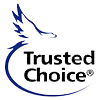A – Glossary of Terms
ALPHABETICAL LISTING
A | B | C | D | E | F | G | H | I | J | K | L | M | N | O | P | Q | R | S | T | U | V | W | X | Y | Z
Abandonment Clause: A clause often contained in a property insurance policy stating that the insured cannot abandon damaged property and then file a claim with an insurer.
Absolute Liability: The liability for damages even though fault / negligence cannot be proven.
Accident: Any sudden event which is unintended.
Accident Insurance: Insurance coverage against loss by accidental bodily injury.
Accidental Bodily Injury: Injury to a person from the result of an accident.
Accidental Death Benefit: An additional paid death benefit in addition to the face amount value of a life insurance policy. Accounts Receivable Coverage Form: An inland marine coverage form that insures against loss the insured suffers when not able to collect account receivables from customers.
Accumulation Period: A specific time period that the insured must establish before benefits begin or are paid out.
Activities of Daily Living: Activities that are considered an everyday part of normal life. Some of these are: dressing, bathing, toileting, transferring (example: moving from and into a chair), and eating. These activities are used to measure the degree of impairment and can effect the eligibility for certain types of insurance benefits.
Actual Cash Value (ACV): The cost to replace an item or property at the time of loss, less any allowance for depreciation.
Actuarial Cost Method: A method used for determining contributions to be made under a retirement plan. Usually applied to the level of benefits when the contributions are fixed.
Actuary: A professional in the insurance business, usually working for the insurance company, that can estimate how a certain sum of money can be contributed to a pension plan, insurance, or other related area to fund that plan for years to come.
Additional Insured: An individual or entity that is not included as an insured under the insurance policy of another, but may be added to provide a certain degree of insurance protection.
Adhesion (Contract of): Parties are of unequal bargaining power, and one party (the insured) cannot negotiate any terms, having to accept the offer of the other party.
Adjustable Life Insurance: A type of life insurance that allows the owner of a policy to change the plan of insurance, raise or lower the face amount, increase or decrease the premium, and lengthen or shorten the protection period.
Adjusted Gross Estate: Approximate net worth of a deceased, known as the beginning point for the computation of estate taxes.
Adjuster: A person who investigates and settles losses for an insurance company, or may be hired independently to resolve any issues (leverage) between the insurance company adjuster and the insured.
Adjusting: The investigation process of settling claims by an insurance company.
Administrative Services Only (AS0) Plan: An arrangement under which an insurance company or an independent agent will, for a fee, handle the administration of claims, benefits and other administrative functions for a self-insured group. This is very popular with larger corporations.
Advance Funding: Pension funding method in which an employer sets aside funds prior to the employee’s retirement.
Age Limits: Stipulated minimum and maximum ages below and above which the company will not accept applications or may not renew a policy. Read your policy.
Agent: An insurance company representative licensed by the state who solicits, markets, negotiates, binds, and administers contracts of insurance while providing a valuable service to a policyholder for the insurer.
Aggregate Deductible: The most a law firm would pay for all claims reported during the policy year.
Aggregate Indemnity: A maximum dollar amount that can be collected for any disability or period of disability under an insurance policy .
Alien Insurer: An insurance company domiciled in another country.
Allocated Benefits: Benefits for which the maximum amount payable for specific services is itemized in your insurance contract.
All-Risk Policies: Coverage through an insurance contract that promises to cover all losses except those losses specifically excluded in your policy.
Alternate Delivery Systems: This system of care is designed to provide needed services in a cost-effective manner. This provides an insured with health services other than an in-patient, acute-care hospital, or other type of facility.Some examples include: skilled and intermediary nursing facilities, hospice programs, and home health care.
Ambulatory Care: These are medical services that are provided as an outpatient (nonhospitalized). Services could include diagnosis, treatment, and rehabilitation.
Amendment: A formal document revising the provisions of an insurance policy. Usually, signed jointly by an insurance company officer and the policy owner or his authorized representative.
Annual Statement: An annual report of an insurance company to a state insurance department, showing financial data relating to the operation of the insurance company.
Annuitant: The person that will receive annuity benefits for a period of time.
Annuity: Considered to be the opposite of life insurance where a death benefit is paid, an annuity provides a benefit while the insured is alive. This is a contract that provides an income for a specified period of time.
Annuity Certain: A contract that provides an income for a specified number of years, regardless whether living or deceased.
Annuity Consideration: A payment, or one of the regular periodic payments, an annuitant makes for their annuity.
Application: A signed statement of facts made by a person applying for insurance. The application is used by the insurance company to decide whether or not to issue a policy. The application becomes part of the insurance contract when the policy is issued.
Arson: The willful and malicious act of burning, or attempt to burn, any structure or property, usually with with criminal or fraudulent intent.
Assets: Any funds, goods , property, rights of actions, securities, or resources of any kind owned by an insurance company.
Assignment: A legal transfer of one person’s interest in an insurance policy to another person.
Association Captive: A type of captive insurer owned by the members of a sponsoring organization or group, such as a trade association.
Association Group: A group formed from members of a trade or a professional association for group insurance under one master health insurance contract.
Association Group Plan: A health insurance plan designed for the members of a professional association or trade association. A members may be protected under a group health insurance policy or by individual franchise policy through this plan.
Assumptions: The many conditions and rules underlying the calculation of a pension benefit.
Attractive Nuisance: Condition that can attract and injure children. The occupants of land on which such a condition exists are liable for injuries to children. In Florida, pool owners are required to fence the area around the pool.
Automatic Premium Loan: The cash borrowed from a life insurance policy’s cash value (to pay an overdue premium).
Automobile Liability Insurance: Protection for an insured against financial loss because of legal liability act that has car related injuries to others or damage to their property.
Automobile Physical Damage Insurance: Coverage to pay for damage to, or loss, of an insured automobile resulting from covered perils.
Automobile Shared Market: A program in which all automobile insurers in each state make coverage available to car owners who are unable to obtain auto insurance in the voluntary market.
Aviation Insurance: Aircraft insurance including coverage of aircraft or their contents. The owner’s liability, and accident insurance on the passengers can be covered
ALPHABETICAL LISTING
A | B | C | D | E | F | G | H | I | J | K | L | M | N | O | P | Q | R | S | T | U | V | W | X | Y | Z







Leave a Reply
Want to join the discussion?Feel free to contribute!